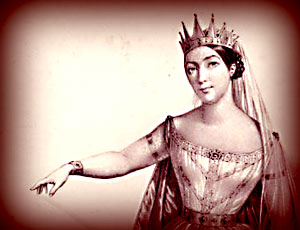Introducting a new guest critic, Giulia Grisi, who blogs regularly for “Il Corriere della Grisi.”

Superintendent Stéphane Lissner must have thought it was time to try it again, counting on the power of the music and the experienced production team, with conductor Daniel Barenboim, director Patrice Chéreau and set designer Richard Peduzzi (of the 1976 Bayreuth Ring). After all, everyone knows that singers aren’t really that important in Wagner, nowadays… are they?
The rehearsals period was something less than idyllic because of problems with the unions, yet Barenboim’s conducting can be called ideal: a beautiful, clean orchestra, rich in color and atmosphere — in fact much more “singing” than the singers on stage. we can indeed describe Daniel B. as the true “deus ex machina” and the real protagonist of the night. Conducting from memory, he has led the La Scala orchestra towards a real Wagnerian sound and has made everything he could to help the singers, literally breathing with them, reducing the orchestral volume when they needed it, pumping it up when they could not finish a phrase. Through his conducting have felt the epic, the passion destroying every rule, the magnificent night, the eternal suffering — in short, the Wagnerian drama we couldn’t see on stage, where a great, realistic canal boat, stark grey walls, some staircases and a lot of trench coats were visible. Chéreau and Peduzzi presented their familiar Wagnerian mise en scène, utterly realistic and utterly ugly, with some dramaturgical errors.
This “avant-garde” art is so past and over that only an theater so behind the times as La Scala can appreciate it. Twenty-three years have passed since this team’s modern dress Lucio Silla production here — and even that was not a success.
Waltraud Meier is a brilliant actress, ravishing and sexy. However, her voice is faded in the lower octave (that’s quite strange, since she began as a mezzo) and in the upper range she shrieks more than she sings. Often out-of-tune, she was able to sing the role to the end thanks to her experience and to Barenboim, who aided her in every possible way, underlining some beautiful intentions in her interpretation and drawing a veil over some glaring flaws in her singing (especially in the Liebestod).
Ian Storey is more a crooner than a Wagnerian tenor: a small, short voice, with insufficient projection, he was neither a hero nor a lover nor a dying prince. Tristan’s love and drama were confined to the orchestral pit. Brangäne, the Wagner “specialist” Michelle De Young, offered the worst vocal performance of the night, with the possible exception of Matti Salminen’s superannuated and shouty König Marke. Handsome Gerd Grochowski barked a rather conventional Kurwenal.
To make a long story short, La Scala has presented a Tristan und Isolde for orchestra and conductor. We may be too “addicted to voices”, but without Barenboim and his experience in minimizing the singers’ problems, this opening night would have been nothing special. — Giulia Grisi, translated by Antonio Tamburini.
